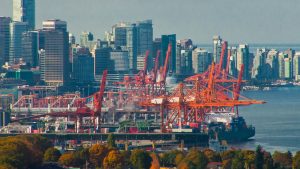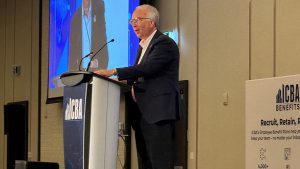After consulting with B.C. businesses and industry leaders, government officials are recommending the province pass prompt payment legislation for construction.
According to documents from the Select Standing Committee on Finance and Government, this would include working with stakeholders on the legislation and ensuring harmonization with prompt payment initiatives nationally.
In the committee’s 2020 budget consultation report, officials noted strong support for prompt payment from the B.C. Construction Association (BCCA) and the Electrical Contractors Association of B.C. (ECABC) who told committee members that delays in payments burden contractors and subcontractors with risk and prevent cash flow throughout the industry and provincial economy.
“The recommendation means we’re a significant step closer to prompt payment legislation in B.C.,” said Chris Atchison, BCCA president. “BCCA and ECABC have been working closely for some time to successfully align industry on this issue, and with this fresh reinforcement from the Select Standing Committee I’m hopeful that the Attorney General will engage more urgently with industry. We know they’ve been watching what’s happening in Ontario, but the time for waiting and watching is up. We’d like to see a Bill put forward before Spring 2020 that reflects industry input and experience.”
The BCCA estimates delayed payment costs the construction sector in B.C. $4 billion.
The ECABC told committee members that uncertainty about receiving payment forces contractors to build more risk into their bids which increases the cost of construction and artificially limits their growth, reducing the number of journeyperson and apprentices they can hire. It also results in a reduced number of bids on a project due to unfavourable contract terms or payment uncertainty, resulting in less competitive bid processes.
“One of our members reviewed their invoices from the last 12 months and found that 70 per cent of their invoices were paid in more than 30 days, 40 per cent took longer than 60 days, and nearly 20 per cent of their invoices took more than 90 days before payment was received,” said Deborah Cahill, ECABC president. “It’s very difficult for businesses to operate if it takes more than three months to be paid for 20 per cent of your work, when you still have to make payroll and cover your operating costs.”
Cahill also noted that the issue has broad support from the construction industry.
“We are pleased that the Select Standing Committee on Finance and Government Services is recommending prompt payment legislation,” said Cahill. “ECABC and its members are optimistic that government will support the recommendation and bring forward prompt payment legislation during the spring 2020 session.”
Currently Ontario, Saskatchewan and Nova Scotia have all passed prompt payment legislation, and the government of Canada has also mandated prompt payment on all federal contracts.
Community Benefits Agreement
Prompt payment wasn’t the only issue discussed in the report. Several organizations, including the Independent Contractors and Businesses Association, expressed concern to the committee regarding the Community Benefits Agreement. Officials were told that non-union and non-affiliated union contractors comprise 85 per cent of the construction industry and that in their opinion, the CBA excludes them from projects.
Opponents of the CBA also described issues stemming from this requirement, including cost overruns due to labour cost risks, delays on projects as contractors are not submitting bids under the agreement, and scope reductions to make contracts work under the agreement.
The Greater Vancouver Board of Trade shared these concerns, noting that the first project under the model has had significant cost escalation, and that these cost increases will reduce funding for other infrastructure.
However, the report made no recommendation regarding the CBA.
Red Tape
When discussing housing and affordability the committee heard about long waits to get building permits and the challenge developers face in cities not zoned for high density. They recommended the province explore ways to enable and support municipalities as they try to increase the supply of housing and approve new housing construction projects. They would also establish a traffic analysis framework and standard to ensure an adequate number of elevators are installed in buildings.
LNG
Liquefied natural gas (LNG) was also a major discussion point in the report.
Natural gas distributor Enbridge told the committee that while B.C. is well positioned to supply natural gas to global markets, the province is falling behind the US because of regulatory uncertainty, layering of climate regulations, jurisdictional challenges, and an inability to get resources to market.
The ICBA also chimed in, proposing plans to attract another similar sized LNG investment to secure production capacity for B.C. and Albert. They explained that construction of an additional facility should be sequenced following completion of the LNG Canada project.
Cities impacted by LNG, like Kitimat and Terrace, expressed concerns about the changes their communities would be going through and the stress it would put on their infrastructure. The Kitimat Community Development Centre shared that the LNG Canada investment, combined with the provincial commitment to hire locally, has caused a labour shortage for local businesses and contributed to high housing prices. This is causing more people to struggle to me their basic needs.
In response, the committee recommended the province “work with federal and local governments to continuously evaluate, assess and support the work in the northwest region to maximize benefits and minimize impacts from LNG projects, including ensuring appropriate investments are made in health care, education, public safety, and infrastructure.”
To build its report, the committee reached out directly to schools, Indigenous organizations, and community-based groups. The committee also sent emails to over 900 stakeholders to notify them of the consultation timeline.











Lot of comment about payment schedules, I’m curious to know how quickly the various contractors pay “their” suppliers for services provided. I’m sure there are untold number of service providers who wait longer than 90 days to receive payment for due invoices.
Suppliers will not accept pay-when-pay. They will not supply product to you if your account is not current. Trades pay their trades people on time and pay their suppliers on time. It is time they are paid on time.